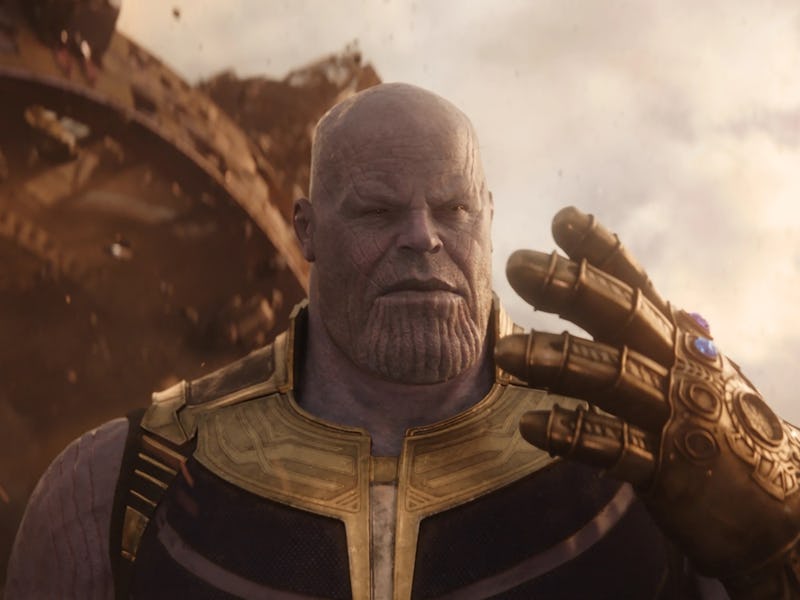As Marvel Movies Spin Their Wheels, Avengers: Infinity War Remains a Remarkable Magic Trick
The title may say “Avengers,” but our hero is Thanos.

When The Avengers hit theaters in 2012, most people were both surprised and impressed by how functional the movie was. Marvel had introduced a pile of characters in individual films, then successfully brought them all together without losing what was interesting about each of them. Regardless of how you feel about the rest of the movie, Joss Whedon and the Marvel machine deserve credit for what they accomplished with The Avengers. Then Avengers: Infinity War was released, and felt like that accomplishment on steroids.
Before Infinity War hit theaters, the internet was full of jokes about how stacked the cast list on the poster was. This was a movie with more than 30 well-known actors in major speaking roles. There was no way it was ever going to feel like anything more than a confusing mish-mash of characters who’d never interacted before. And yet despite all that baggage, Infinity War works. It pulls off the near impossible, creating scenes between new pairs of actors that feel genuinely fresh even as it pushes an overarching plot that’s lasted for years toward its conclusion.
Most of the credit for that goes to screenwriters Christopher Markus and Stephen McFeely, who managed to shove all these familiar characters together by introducing a new one. While Endgame is very much about our core Avengers, Infinity War isn’t about any of them. Instead, the movie’s actual protagonist is Thanos, a giant purple guy who really wants to collect a bunch of rocks. Every single other Marvel movie is about the good guy overcoming the odds to win. Infinity War breaks that rule.
Thanos isn’t interesting on paper, but thanks to a credible motion capture performance from Josh Brolin, he works. Thanos is almost Shakespearean in his villainy, determined to meet his ends at any cost. He also has more screen time than any other character. Thanos is the only person in this movie who wants something — namely, to eliminate half the population of the universe. All the Avengers can do is try their best to stop him.
Even though Thanos’s ideology is monstrous, he’s the driving force of the movie and the character Infinity War orients itself around. Everyone else just waits for him to show up, and when he does, he ultimately wins every fight. He also gets a few genuine emotional beats courtesy of his adopted daughters Gamora and Nebula. Thanos is an unlikeable character, but he becomes a genuine one.
Will our lead overcome these obnoxious thorns in his side?
And, of course, Infinity War ends exactly the way it might if Thanos really were the hero. He gets all the stones, snaps his fingers, and watches the sun rise on a world he thinks he saved. Thanos gets a happy ending, and the movie, requisite post-credits scene aside, ends with a shot of his face. It’s a chilling final image that cements Infinity War as a movie about him above all else.
Because Thanos is the protagonist, we get to see all of our familiar Marvel heroes in a new light. They are the antagonists and the ones who ultimately find that they’ve lost. Making Captain America, Iron Man, or any other hero the protagonist of Infinity War would have thrown the movie off its axis. Instead, each hero is a supporting player in someone else’s story, and they’re relieved of the burden of having to advance the plot.
We can’t know for sure, but the structure of Infinity War is likely the only way a movie of its size could ever work. Like a sleight of hand, the movie shows you a bunch of characters you’re already familiar with, but shoves them all aside in favor of someone new. In turning characters that are usually protagonists into antagonists without making them villains, Infinity War neatly inverts the dynamics of basically every other superhero movie, leaving viewers fundamentally unsatisfied in a way they had never been before. Thanos wins, the Avengers lose. It was inevitable.